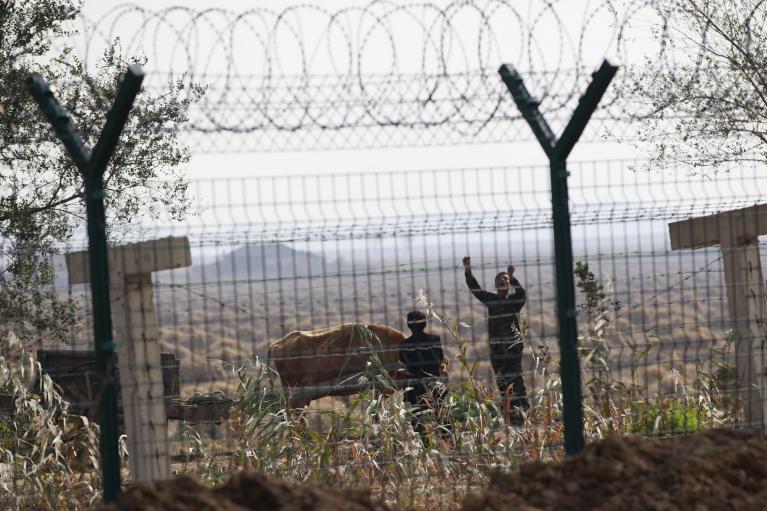- California Assembly OKs highest minimum wage in nation
- S. Korea unveils first graphic cigarette warnings
- US joins with South Korea, Japan in bid to deter North Korea
- LPGA golfer Chun In-gee finally back in action
- S. Korea won’t be top seed in final World Cup qualification round
- US men’s soccer misses 2nd straight Olympics
- US back on track in qualifying with 4-0 win over Guatemala
- High-intensity workout injuries spawn cottage industry
- CDC expands range of Zika mosquitoes into parts of Northeast
- Who knew? ‘The Walking Dead’ is helping families connect
China turns hostile toward N. Korea defectors
By Yi Whan-woo and Joint Press Corps
BEIJING ― The Chinese government regards North Korean defectors as illegal immigrants who should be forcibly repatriated.
Its recent hostile approach came despite the United Nations’ growing criticism of Beijing’s forced repatriation of asylum seekers from the Kim Jong-un regime; and possibly reflects an improvement in relations between China and North Korea.
“We don’t use the term defectors here,” Chinese Foreign Ministry spokeswoman Hua Chunying told a group of visiting South Korean reporters. “Those North Koreans have illegally crossed the border due to financial hardship in their homeland. They did not go through normal immigration procedures and also disrupted public order in our border regions.”
She said China is dealing with the asylum seekers under domestic and international laws, and the principle of humanitarianism.
The U.N. Committee Against Torture (CAT) proposed last month that China become more transparent in safeguarding asylum seekers from North Korea.
Concerns are growing that those escapees face a high risk of persecution if they are arrested and returned to the repressive regime.
China has refused to recognize the North Korean defectors as refugees as stipulated by the U.N. Convention relating to the Status of Refugees in 1951.
It states refugees are people who cannot return to their homeland due to fear of being persecuted for “reasons of race, religion, nationality and membership of a particular social group or political opinion.”
Citing the economic slowdown in North Korea since the 1990s, Beijing has expressed concern that the North Koreans might exploit the convention merely to escape poverty and stay in China.
“We’re handling those who broke a law here just like the way South Korea does,” Hua said.
She said the foreign ministries of Seoul and Beijing have been working closely to resolve issues involving North Korean asylum seekers.
Improved relations
Analysts speculate that China is maintaining its hard-line policy against the defectors as a way to improve relations with Pyongyang amid a recent thaw of their strained political ties.
“China has remained unchanged in its stubborn policy against North Korean asylum seekers for years,” said Park Won-gon, an international relations professor at Handong University. “But it nowadays has a strong reason to underscore such a policy because it wants to move forward in its relations with internationally isolated Pyongyang.”
Kim Yong-hyun, a professor of North Korea studies at Dongguk University, agreed.
“China can’t simply agree with international demands and accept North Korean defectors as refugees because it would lead to an exodus of North Koreans and seriously damage Beijing-Pyongyang ties,” he said. “Beijing will also lose control over security on the border while it wants to be a major player in regional security.”
Acknowledging that Sino-Pyongyang ties had been frosty, Hua said China’s “normal and stable” relations with North Korea will help set the stage for Pyongyang’s denuclearization and contribute to regional peace.
She said North Korea is “displeased” with China’s constant call for denuclearization and upset about Beijing’s amicable relationship with South Korea.
Meanwhile, Park speculated that China is being cautious about provoking the U.N. amid growing international pressure against North Korea’s state-perpetrated human rights abuses.
“I want to underscore the fact that China touched on its cooperation with South Korea, through which Beijing wants to show the world that it is a responsible member of the international community,” he said.













![일본 사도광산 [서경덕 교수 제공. 재판매 및 DB 금지]](http://www.koreatimesus.com/wp-content/uploads/2024/07/PYH2024072610800050400_P4-copy-120x134.jpg)


